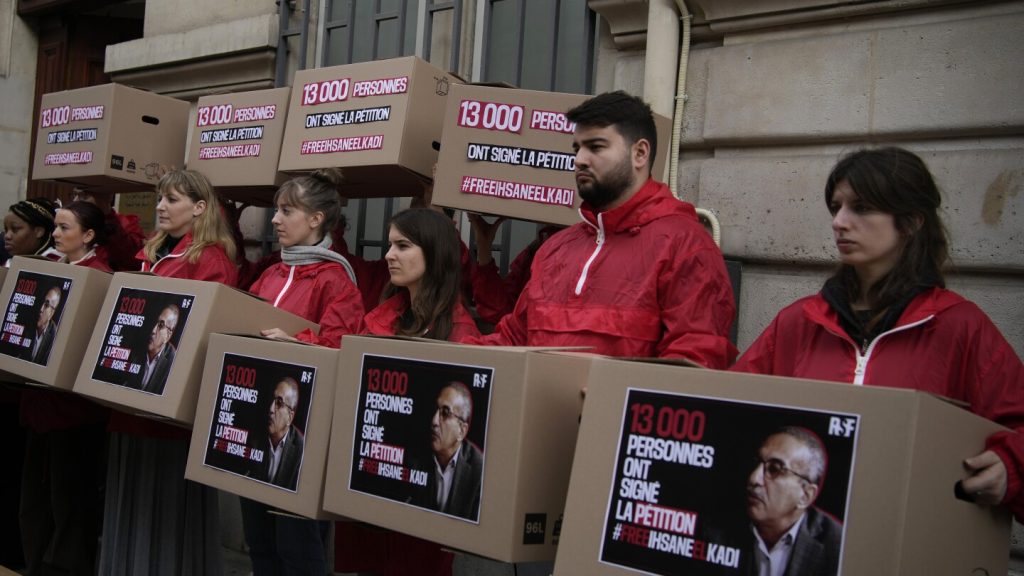Algeria has granted a pardon to journalist Ihsane El Kadi, a prominent figure in the country’s 2019 pro-democracy protests who was later imprisoned for alleged offenses related to foreign funding for his media outlets and threats to state security. El Kadi, who was released from prison on the 70th anniversary of Algeria’s revolution, was the editorial director of Radio M and Maghreb Emergent, which covered the Hirak protests extensively and provided a platform for pro-democracy voices and debates. As one of the few independent voices in Algerian media, El Kadi faced backlash from authorities during Bouteflika’s presidency and the subsequent regime of Abdelmadjid Tebboune.
El Kadi’s arrest in 2022 and subsequent seven-year prison sentence drew international condemnation and highlighted Algeria’s restrictions on free expression and dissenting voices critical of the government. Both Radio M and Maghreb Emergent were closed down following his arrest, further restricting media freedom in the country. His release from El Harrah prison was met with joy by pro-democracy activists and press freedom advocates, with Reporters Without Borders’ North Africa Representative Khaled Drareni stating that El Kadi should never have been imprisoned. The hope is that his release will signal a shift towards greater press freedom in Algeria.
Algeria has been facing criticism for its crackdown on freedom of expression, with Amnesty International calling out the authorities for creating a climate of fear and censorship in the country. Journalists have been targeted through arbitrary detentions, prosecutions, restrictions on movement, and sanctions on media outlets, contributing to a deteriorating media landscape. The release of El Kadi and other individuals, including pro-democracy activist Mohamed Tadjadit, known as the “poet of the Hirak,” is seen as a positive step towards reform in Algeria. Tadjadit had been detained in January for criticizing the authorities on social media, adding to his history of run-ins with the government.
The pardons issued by President Tebboune were part of a larger group of 4,000 individuals who were released based on clemency decrees. The group included people convicted of low-level crimes and “undermining public order,” a charge frequently used by Algerian authorities to target dissidents. Tebboune’s actions are seen as an attempt to address concerns raised by human rights organizations and international observers about Algeria’s record on freedom of expression and human rights. The hope is that these releases will pave the way for a more open and democratic society in the country.
The release of Ihsane El Kadi and other individuals detained for their activism or critical voices marks a significant moment in Algeria’s ongoing struggle for democracy and human rights. The Hirak protests, which began in 2019 and led to Bouteflika’s resignation, have continued to push for reforms in the country. The involvement of journalists like El Kadi and activists like Tadjadit underscores the importance of free speech and independent media in holding the government accountable and advocating for change. As Algeria grapples with its past and looks towards a more inclusive future, the release of these individuals signals a potential shift towards greater freedoms and respect for human rights in the country.


